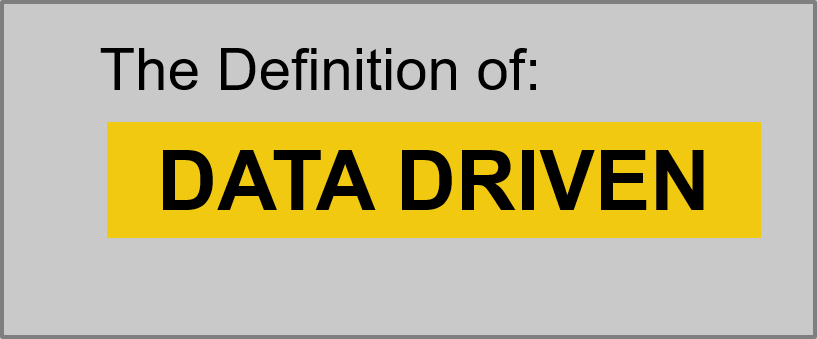Let’s illustrate the meaning of “data driven” with an example. Here’s a simple question, and two different responses to the same question:
Question: “How is the marketing campaign going?”
Response #1: “It’s going great. We’re getting lots of leads. Lots of people are getting our emails. I think we should do the same campaign next month.”
Response #2: “We launched the campaign 20 days ago. We have 10 more days to go. We have 180 new leads. Our target for the entire month was 200. The Open Rate on our emails is 6%, the Click Rate is 50% of the opens. We have spent 100% of our budget, and we don’t forecast any further expenses for the remainder of the campaign.”
Which response do you prefer? Response #2 would be normal in an organization that is “data driven.”
Being data driven means that when it comes to making decisions in your business, data is considered along with knowledge, experience and intuition. Relying only on data, as in some baseball stories, is unwise. So is relying only on gut-feel.
Data can be misinterpreted in so many ways that it is important to examine it in light of your knowledge and experience about the situation. We are the first to caution that correlation does not mean cause-effect. Suppose, for example, the data shows that the number of days schools are closed per month is higher in warmer months compared to colder months. Does this mean that warm temperatures cause schools to be closed more? To come to that conclusion does not imply being “data-driven.” It is indicative of a lack of knowledge about school calendars.
In a data-driven company, when a course of action is being taken, the question “does the evidence support our assumptions?” is also always asked.


